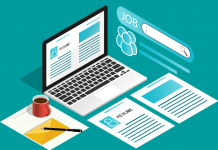So you passed your initial interview. While it's a good reason to reason to celebrate, it certainly isn't a reason to congratulate you just yet. Your final interview is still looming ahead. And not without its traps and surprises.
So if you want to sign that job offer, pay attention to the quality of your preparation. This post will help do just that. Here's how to pass your call center final interview and make it to your job contract signing.
Initial vs final interview
While initial interviews ask almost similar questions as final interviews, they aren't entirely the same. Each serves a specific purpose. In fact, one cannot stand without the other.
Initial interviews are designed to be brief, quick, and generic, while final interviews are long, in-depth, and personalized. The first one is designed to deal with quantity. The second is to determine the final quality.
What to expect during your call center job final interview
Aside from the obvious English fluency and communication skills criteria, here's what you should expect during a final interview:
1. Follow-up questions.
True, some interviewers ask extreme follow-up questions to intimidate. Especially if they don't like you. But that's very rare and only happens to a selected few.
In fact, if you're a beginner, your interviewer will probably go easy on you. So if she asked follow-up questions, know that it's because she's doing her job and not because she wanted to intimidate you.
Follow-up questions are designed to test out your reasoning skills. When you talk to irate customers who won't hang up the phone until they talk to a supervisor, you'll need exceptional reasoning skills to convince them that you can help them and that there's no need for a supervisor.
So expect follow-up questions. Lots of them. If in the initial interview your interviewer only asked "Why should we hire you?", expect to get a rebuttal like "Yes, you're hardworking, but why shouldn't I hire the other 'hardworking' applicants?"
These type of questions will throw the unprepared applicants off guard.
What to do about it:
List down all the potential follow-up questions that an interviewer might ask after your initial answer. Then prepare for a rebuttal for each. Here's an example:
Question: What's your edge over the other applicants?
Sample answer: I'm hardworking and you can expect that I'll do what I'm expected to do, and even exceed your expectations.
Potential follow-up question: Yes, but I've been hearing "hardworking" from the last 10 applicants today. What is it about you that sets you apart from them?
Now in this question, your interviewer isn't actually asking about what makes you unique or better than other applicants. It's not like the company only has one position to fill in.
Call center companies need hundreds of headcounts. So they don't need someone who's unique. They need applicants who can reason themselves out of a tight situation. So they ask these questions to test the applicants' problem-solving skills.
If you want a detailed explanation of all possible final interview questions, click here. Each question has one dedicated post written so each explanation is quite in-depth. The articles will also help you deal with follow-up questions.
For a sample answer to the interviewer's follow-up question above, read this post.
2. Behavioral questions
Behavoral interview questions are the what if or what would you do questions. When interviewers ask these, they're truly assessing your working behavior and figuring out how likely you're gonna fit and adapt to the call center working environment. I
In short, they're asking whether you're gonna be a contributor, a freeloader, or worst, a trouble maker.
The question starts with a given scenario then follows with a what would you do or in some cases, what did you do. Below are a few examples:
- What would you do if you have a rude boss or colleague who’s affecting your productivity at work?
- Tell me about a time you handled a difficult situation at school or in your previous job?
Here's my in-depth guide on the different types of behavioral interview questions and how to answer them: Call Center Behavioral Interview Questions and Answers.
3. Customer service questions
These questions will test out your customer service skills if you're applying as a CSR.
Examples:
- How does good customer service look like to you?
- How would you handle an irate customer? (answer)
- Or the interviewer conducts a mini mock call. This usually happens if the company doesn't have Versant or Berlitz. She gives a scenario involving an irate customer then you act as the agent and your interviewer as the customer. To get more examples about mock calls and call simulations, click here and here.
When answering customer service questions, remember to:
- acknowledge the customer's feeling
- understand what's causing the problem
- provide the best resolution possible while still following the company's process.
4. Sales questions
You'll encounter sales questions if you're applying in a sales account, or for any account that involve upselling. Some of the common questions are the following:
- Sell me this pen. (answer)
- How would you sell ice to an Eskimo?
- How would you sell a condom to a priest?
The last 2 questions sound impossible to answer but it is possible to get around them. I'll write about this next month.
For now, know that when answering sales questions, you have to sound convincing and confident, as if you're selling is the cure for cancer.
Pay attention to your tone of voice, inflection, and your rebuttals every time a customer expresses his doubt. Confidence—no matter how silly you'll sound in promoting your product— is what your interviewer will want to hear.
4. Weird interview questions
Don't be surprised if, in the middle of the interview, your interviewer asked weird questions such as:
- How would you describe color orange to a blind person?
- Why are pizzas round?
- How would you hide a dead body?
These questions are designed to catch you off guard and see how smooth you'd come out of a difficult situation. They also test out your problem-solving skills, hence the surprise element.
In the call center industry, not a day goes by without these little surprises. I had a workmate who got a customer who started crying in the middle of their conversation for no apparent reason.
Some agents heard customers tell jokes, which take 5 minutes to tell, only to find they weren't funny at all but they're obliged to laugh anyway. Otherwise, it would be awkward. Surprises.
You'll probably encounter at least one or two of these questions. If you want to know how to answer weird job interview questions, check this out. I've written 15 examples of them.
5. It might sound like an interrogation.
Remember that job interviewers are trained to feel suspicious even on the tiny little details. Plus they've been trained to develop instincts that are much sharper than your cat.
Not as harsh as police interrogations exactly. Just a tad bit friendlier.
If you happen to (or intentionally) put the wrong timeline on your resume, expect an interviewer to raise questions about it, especially if you're applying in a banking account.
Before you know it, you'll be bombarded you with questions designed to trip you make you lose your balance.
Conclusion: How to pass a call center final job interview
Don't just wing it out. Prepare for it and understand the why behind each interview question. Final interviews are designed to test your value and quality as a potential employee.
Prove your worth by knowing what your interviewer wants to hear and in no time, you'll be signing that job offer.
You might not believe it but most interviewers are actually rooting for applicants to pass, especially in a call center industry where meeting the headcount is essential to keep the operation running. Only 1% of them are actual terrors. Just prove that you're worth it.



